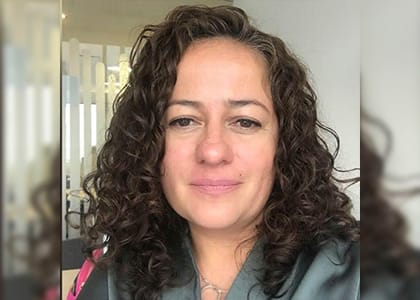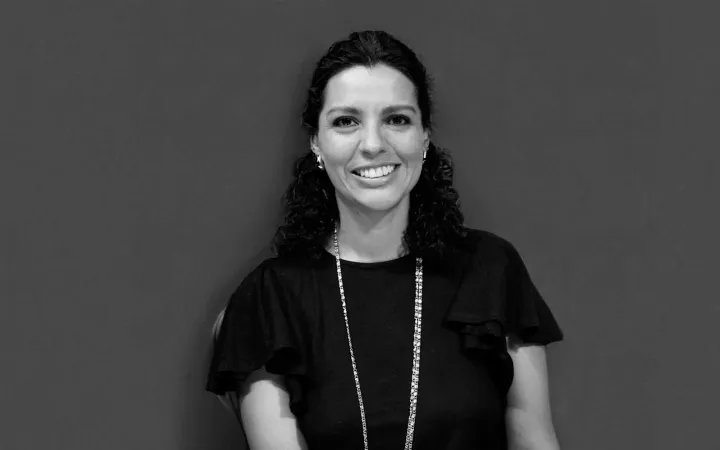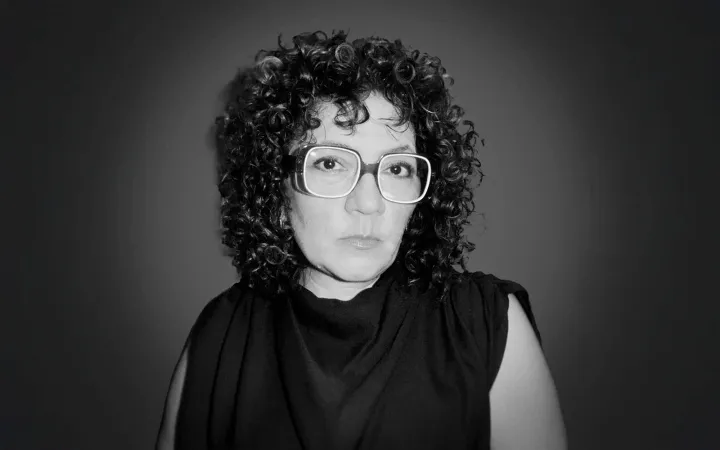
Por Luz Romano

¿Tu hijo tiene autismo? No me digas, seguro es muy inteligente. Dicen que son unos genios, buenísimos en matemáticas. ¿Qué tu hijo es autista? Muchos famosos tienen autismo, ¿no?, y hacen cosas increíbles. ¿Por qué no lo llevas a terapia de lenguaje? Ahí seguro aprende a hablar. Échale ganas, verás que sale adelante, porque estos chicos son muy brillantes.
Emilio, mi hijo adolescente de 17 años, fue diagnosticado con autismo cuando tenía tres y vivíamos en Inglaterra. Entonces, aún pensábamos que su condición podría no ser tan severa, pero con el tiempo confirmamos que su autismo es no verbal y severo en magnitud. Desde hace años, como familia hemos escuchado tantas veces comentarios –digamos que bien intencionados- que hacen eco de la falsa percepción de que las personas con autismo son algo así como personas extravagantes y genios incomprendidos que no encajan de todo en sociedad, pero que son funcionales y en el fondo entrañables, y no personas con discapacidad que, en muchos casos, requieren apoyo permanente. Para nosotros, esos comentarios son apenas menos hirientes que aquellos, también recurrentes, del tipo de “dios sabe por qué hace las cosas”.
Afortunadamente, hoy se habla más de autismo que hace 10 años. Algunos somos fans de las series de televisión que nos presentan a personajes como Sheldon Cooper, un genio de la física incapaz de interactuar socialmente. Otros, conocemos la historia de Temple Grandin, quien a pesar de haber sido diagnosticada con autismo logró concluir un doctorado y es defensora de las personas con esa condición. En redes, recientemente se viralizó el caso de Stephen Wiltshire, un joven capaz de dibujar a detalle cada edificio y calle de ciudad, que recién ha sobrevolado. Cada vez son más historias de a quienes los médicos no dieron esperanza y hoy se integran con naturalidad al mundo, estudian, trabajan y tienen amigos.
Según esta moda, el autismo se ha vuelto algo incluso “cool”, tanto, que algunos medios se atreven a sugerir que tal o cual personaje es en el fondo autista, por ejemplo, Lionel Messi.
Pareciera que ese trastorno no es tan grave. Tristemente, la realidad es otra. Esa visión romantizada no refleja la realidad de decenas de miles de personas que viven con autismo no verbal severo. Mi hijo Emilio no es un genio como Sheldon Cooper. Jamás ha dicho una sola palabra y ese es el menor de sus problemas. Emilio no tiene amigos, no va a una escuela “regular” como cualquier chico de su edad, se auto agrede cuando se estresa o tiene dolor físico, no entiende contextos y mucho menos peligros. Si lo dejo solo en la banca de un parque, él simplemente se levantará y se irá. Mi hijo no expresa sorpresa o dolor (no porque no lo sienta) y tiene intereses limitados. Mi intuición es que en México hay más Emilios que Temple Grandin.
Escribo este texto desde el hospital en el que Emilio ha permanecido internado durante 18 días. Padeció de una afección intestinal y apendicitis. Otro muchacho de su edad, se hubiera recuperado más rápido. Estaría en su habitación comiendo helado y viendo la televisión. Debido a su condición, la cual le impide mantenerse cooperativo y quieto, Emilio estuvo sedado e intubado varios días. Cuando se despertó, tuvo que ser sujetado a la cama. Por fortuna, aprendió a tragarse las pastillas pero no hay forma de darle medicamento en suspensión.
Pese a que los médicos se han portado a la altura, nadie sabe realmente cómo atender a un chico de esos que no aparecen en videos de tiktok, un joven que intenta levantarse de la cama e irse aún con los efectos de la anestesia, que se tambalea de un sitio a otro e intenta escapar una y otra vez.
En estos días mi esposo y yo hemos tenido que permanecer en terapia intensiva sin descanso, ser enfermeros, asistentes médicos, terapeutas y cuidadores constantes de nuestro hijo que mide 1.82 centímetros. Ni nosotros, sus padres, sabemos a ciencia cierta cómo reaccionará una vez que todo esto termine y verlo en esta situación es algo muy doloroso. Lo que escriba se queda corto.
Cada persona con autismo es distinta, Emilio no pertenece a ese grupo de quienes logran integrarse a pesar de su autismo, de quienes a los ojos de los demás le echaron ganas; es casi mayor de edad y nuestra preocupación no es si podrá votar, sino que necesita apoyos para bañarse, ir al baño, vestirse, lavarse las manos o los dientes; en cualquier descuido se come el jabón, el champú, muerde cables y cualquier otra cosa rara que se pase por su camino. Emilio es un ser de amor, su mirada y su sonrisa podrían hechizar a cualquiera, es guapo, es cariñoso, fuerte y muy tierno; yo quisiera que su autismo no lo definiera, quisiera que nadie lo etiquetara, pero para que eso suceda, debería primero haber un entendimiento de que en el Trastorno del Espectro Autista caben muchas posibilidades.
El TEA es una condición que afecta la comunicación e interacción social, y la flexibilidad del comportamiento y del pensamiento. Las personas con TEA tienen conductas o intereses restrictivos o repetitivos. Y esta condición va desde el grado 1 o autismo de alto funcionamiento, hasta el grado 3 en el que las personas necesitan apoyo constante.
El mundo alrededor de Emilio ha sido el verdadero reto, pues de nuevo, el romanticismo y desconocimiento hace que la inclusión educativa, médica o el reconocimiento de su discapacidad sean barreras a sortear todos los días. Intentar ir a la escuela y ser rechazado una y otra vez, no poder ir al cine, al teatro o parque de diversiones, ¿un hotel en la playa? Ni soñarlo.
En materia de salud y reconocimiento de su discapacidad, el Estado no es un aliado; un ejemplo es que en el DIF para sacar una credencial de discapacidad (que sirve para nada) debes llevar al menor a la Secretaría de Salud para obtener una carta de diagnóstico y además al DIF para que lo midan, lo pesen y expliques dos, tres, cuatro, cinco veces en la misma mañana que no habla, lee o escribe cuando es más que evidente, pasar al menos a tres revisiones luego de largas esperas y las preguntas siempre las mismas. Al fin tienes la credencial y resulta que es válida por 5 años (no vaya a ser que se cure); y luego al cumplir 18 años lo debes llevar al IMSS para que lo vuelvan a diagnosticar (la credencial del DIF no la hacen válida) y que pueda seguir siendo derechohabiente.
A pesar de que la inclusión educativa es un derecho, encontrar una escuela primaria fue un verdadero reto. Decenas nos ponían los peores pretextos y el único año en que Emilio asistió a una escuela pública (cuarto grado), terminó en un rincón con su acompañante terapéutico (pagado por sus padres, no por el Estado), ignorado por su maestra; lo peor fue cuando padres de familia se quejaron de que Emilio hacía ruido y distraía a sus hijos neurotípicos.
Ejemplos como este me sobran porque la sociedad desconoce, o no quiere ver, esta parte tan complicada del autismo. Perdí la cuenta de la cantidad de veces que me han preguntado ¿no lo ha llevado a terapia de lenguaje?, ¿no le enseñas a comer con cuchara?, ¿por qué no lo pones a dibujar?, ¿por qué grita de la nada? Con paciencia explico que visitamos frecuentemente al neurólogo, estamos en constantes terapias, tiene monitora terapéutica y acude a un centro especializado en autismo. Cada que aclaro que con mi hijo no ha sido suficiente echarle ganas me invade el sentimiento de “no he hecho lo suficiente” y eso es algo muy doloroso para unos padres que no saben lo que es dormir una noche completa desde hace 17 años. Somos una familia clase media que trabajamos y nos esforzamos por el bienestar de nuestros hijos, pero somos minoría, la mayoría de pacientes con autismo no tienen la posibilidad de pagar un acompañante terapéutico o una institución especializada.
Veamos al autismo como lo que es: una discapacidad que en algunos casos puede ser llevada con algún nivel de“normalidad” pero que en muchos otros es una condición severa que afecta el día a día de quien la padece a grados insospechados. Nuestros niños y niñas con autismo se vuelven adultos y siguen viviendo con autismo y, ¿qué creen?, echarle ganas no es suficiente. Necesitamos que se les reconozca, entienda y apoye, porque también son parte de nuestra sociedad. Son nuestros y no, no son unos genios.
*Luz es mamá de Emilio, Pablo y Daniel. Además, es directora de comunicación en Mexicanos Primero
Las opiniones expresadas son responsabilidad de sus autoras y son absolutamente independientes a la postura y línea editorial de Opinión 51.





Comments ()